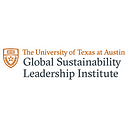Alumni Spotlight: A Conversation Dana Rodriguez, Intern at United Nations Environment Programme Finance Initiative (UNEP: FI)
By SII Correspondent Sarang Dev Murthy
Sarang: Hi Dana! Thank you for sitting down with us today. How about we start with you briefly telling me about your time at UT? And also, what are you doing now?
Dana: Of course! I was an International Relations and Global Studies major and did pre-med alongside. I graduated from UT in 2018. That June I was accepted to a master’s program in Public Administration and Politics with a focus on International Relations at the University of Konstanz in Germany. In April 2019 I started an internship program at the United Nations Environment Programme Finance Initiative (UNEP-FI) in Geneva, Switzerland.
Sarang: Could you tell me a little bit about how and why you chose this internship?
Dana: I have always wanted to work in the health and environment space especially within the IR realm. When I was looking for internships, I wanted to find something that would not be only EU centric but also have a global flavor to it. I applied to the UN internship because it had that blend that I was looking for. The internship is competitive but at the end of the day, if you don’t try you don’t know what can come your way. So far, this has been one of the best experiences of my life!
Sarang: Sounds like you found a wonderful experience for yourself. What kinds of work does the UNEP-FI do?
Dana: All or most of the UN is focused on the public sector and not necessarily the private sector. The UNEP-FI is the only vertical within the UNEP that is private sector facing; mainly dealing with financial institutions. I wanted to dip my toes into the world of finance. Through most of my academic work I have come to understand that finance and the economy in general play a vital role in social impact. One needs to bridge the gap between the public and private sector, and that is the general goal of the UNEP-FI.
Sarang: You make a great point in that sources of finance are vital for social development and growth. What is the UNEP-FI trying to achieve, broadly, in working with a profit driven financial institution?
Dana: The UNEP-FI has different projects like banking, investment, insurance, climate change, social impact, and regional specialties. Banks and other institutions pay a certain “membership fee” to be able to fund certain initiatives that that UNEP-FI has targeted as long term growth opportunities. For example, one project I was part of focused on ecosystems management which basically means that we looked at how climate change will alter certain ecosystems and how the economy around that ecosystem will change, and in the long-run what that means for changing investment and the changing social landscape that is dependent on that type of ecosystem. Ecosystems such as agriculture, fisheries, animal farming, etc.
Sarang: What does being a member involve? What is the benefit to the financial institution?
Dana: Members sign up to abide to a set of principles. Essentially these are “soft laws” which means that these laws are not enforceable, but a member agrees to follow these principles in accordance with the understanding that others will follow them as well. They are branded a “green bank” which means that they agree to invest in ecosystems that are changing and have different capital needs. Green finance is a growing field and there is quite a ways to go but this a stepping stone in the right direction.
Sarang: You’re seeing stagnant wages, slowing inflation and global growth, and now global economies are bounded by a certain rate ceiling. Not arguing the goods and bads of this, but in terms of the long-view, in some ways, from a traditional text-book economics sense, this could be viewed as stability. I digress! Anyway, what is next for Dana?
Dana: My internship at UNEP-FI ended but I have a year and a half left of my masters. I am doing an exchange program in Serbia at the University of Belgrade. I am going to be studying economics and conflict studies there. After that, I am doing another internship in New York City from January to April. This one is at the US Permanent Mission to the UN. The project will be similar to the one I did at UNEP-FI but more US focused. I will then go back to Germany for a year and graduate in 2021. I am very excited!
Sarang: I can only imagine! All this sounds so exciting. So many adventures all around the world. New York City is probably the greatest city in the world. I may be a little bias! In any case, good luck with everything and keep in touch!
This interview has been edited in context and length for clarity and brevity.
